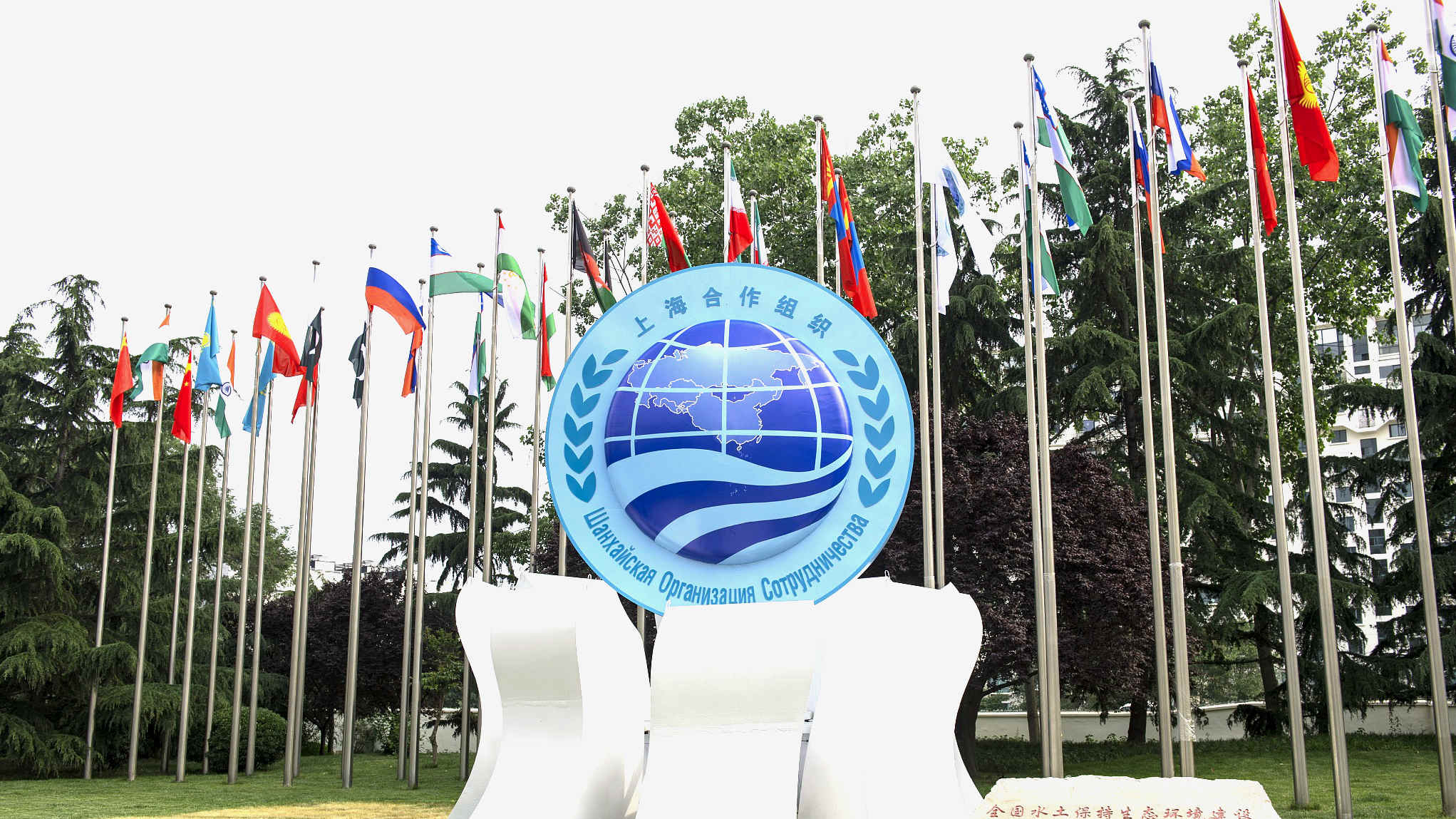Editor’s note: Dmitrii Lukiantsev is the Minister Counselor of the Russian Embassy in China and permanent representative of Russia to the Secretariat of the SCO. The article reflects the author’s opinion, and not necessarily the views of CGTN.
Preparations for the 18th Shanghai Cooperation Organisation are now in their final stage and, frankly, expectations are high as this will be the first SCO Heads of States Meeting since India and Pakistan joined last June.
Considerable package of documents aimed at promoting joint work within the SCO in priority areas will be presented to SCO leaders for approval, among which there will be Qingdao Declaration and Information Communiqué.
They will contain a consolidated assessment of the current situation in the region and the world and prospects for its development, specify common approaches to the most pressing international issues, review basic achievements of SCO cooperation in the past year and outline priority steps for future work.
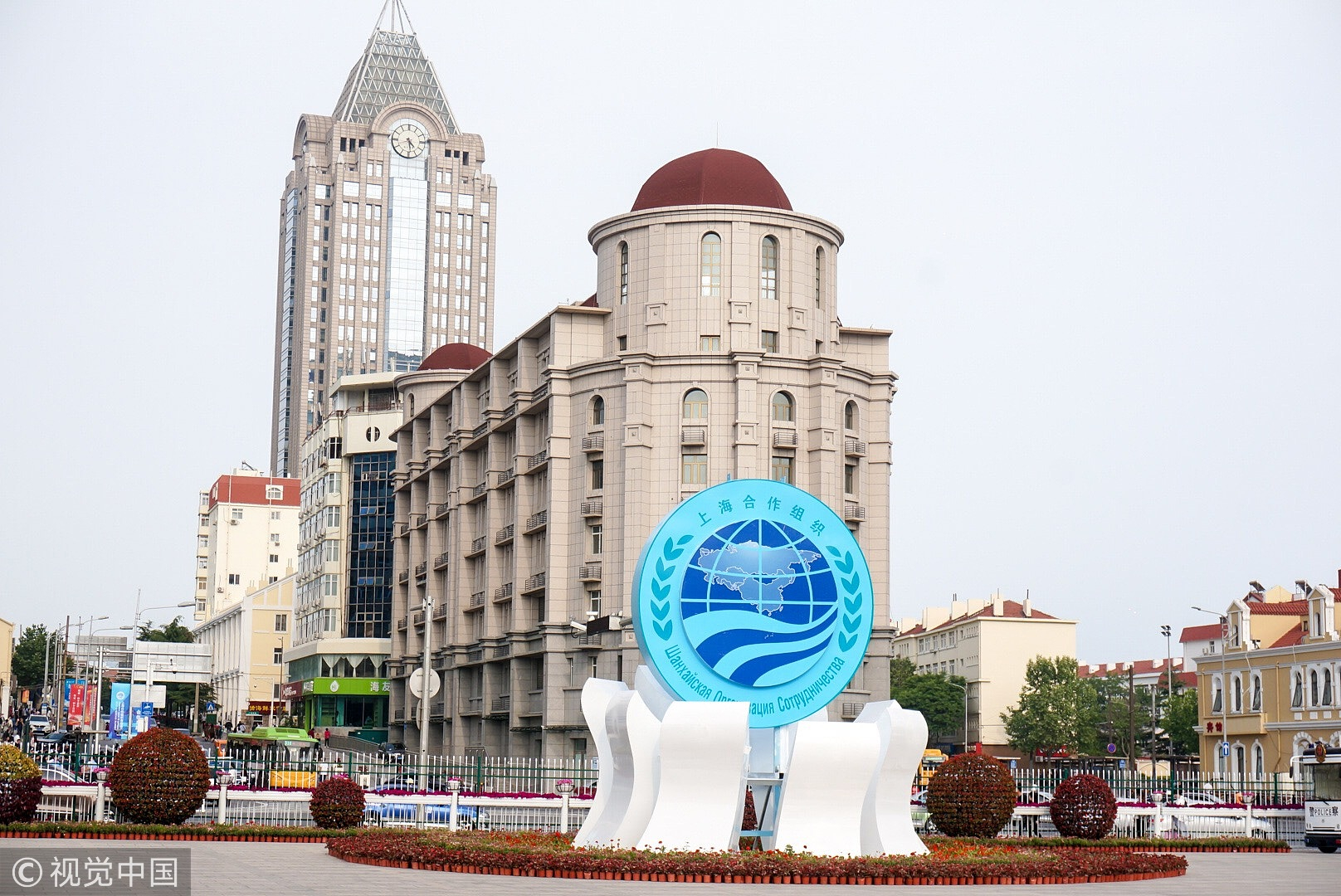
SCO logo in Qingdao railway station. /VCG Photo
SCO logo in Qingdao railway station. /VCG Photo
On the one hand, efforts have been made to integrate new members into the vast network of cooperation mechanisms existing in the organization as smoothly as possible.
On the other, it was important to maintain the pace of the joint work, not to let objective factors to slow it down. Today, it is evident that both principal objectives have been achieved.
Against the background of anti-globalization
Issues of building an inclusive and just world trade system have been in the focus of attention of SCO Member States since it was established in 2001. It is a permanent discussion point at meetings of SCO Heads of States and Governments as well as ministers responsible for foreign trade.
In December 2015 in Zhengzhou, China SCO Heads of Governments adopted a special Statement on Promoting Regional Economic Cooperation where this particular topic was duly reflected.
It was on top of the agenda in Sochi last December at a similar meeting. It will also be present in the political documents of the upcoming SCO Summit in Qingdao.
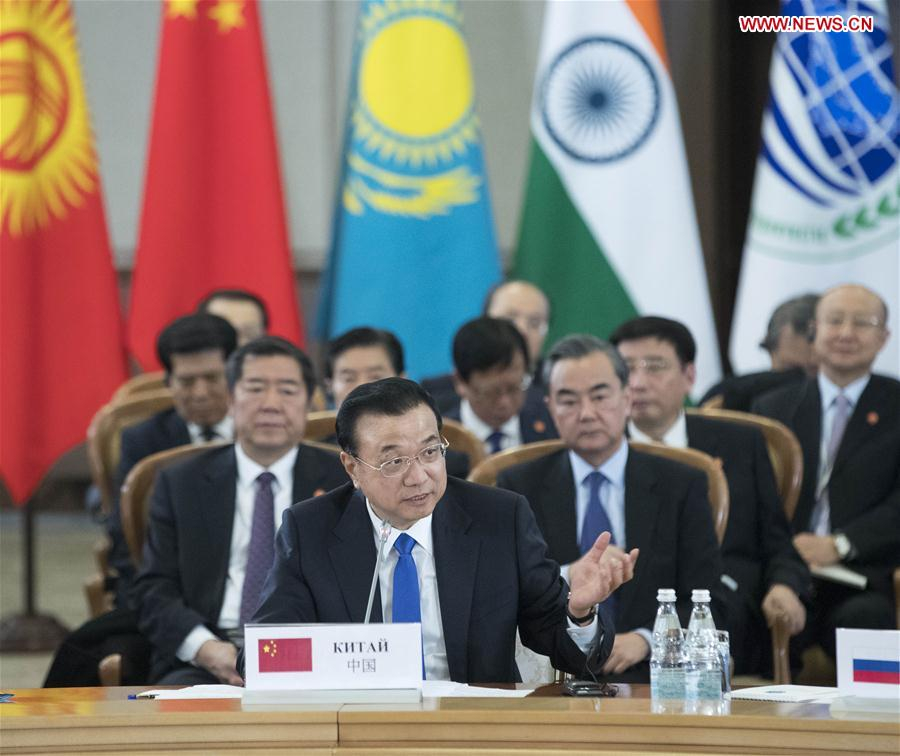
Chinese Premier Li Keqiang attends the 16th meeting of the Council of the Shanghai Cooperation Organisation (SCO) Heads of Government (Prime Ministers) in Sochi, Russia on December 1, 2017. /Xinhua Photo
Chinese Premier Li Keqiang attends the 16th meeting of the Council of the Shanghai Cooperation Organisation (SCO) Heads of Government (Prime Ministers) in Sochi, Russia on December 1, 2017. /Xinhua Photo
Russia, China and the other Member States are united in the necessity to improve the architecture of global economic governance, develop trade, economic and investment cooperation based on principles of openness, inclusiveness, balance of interests and mutual gains.
China and Russia together call for consistent enhancement and promotion of a transparent, non-discriminatory, open multilateral trade system with the World Trade Organisation as its core and jointly work towards consolidating the WTO.
We do not accept protectionism in any form whatsoever and coordinate efforts aimed at removing all existing and preventing the emergence of new protectionist barriers.
Last but not least – SCO Member States advocate setting up favorable conditions for trade and investment in order to ensure gradual free movement of goods, capital, services and technologies in SCO space – as stipulated in the SCO Charter.
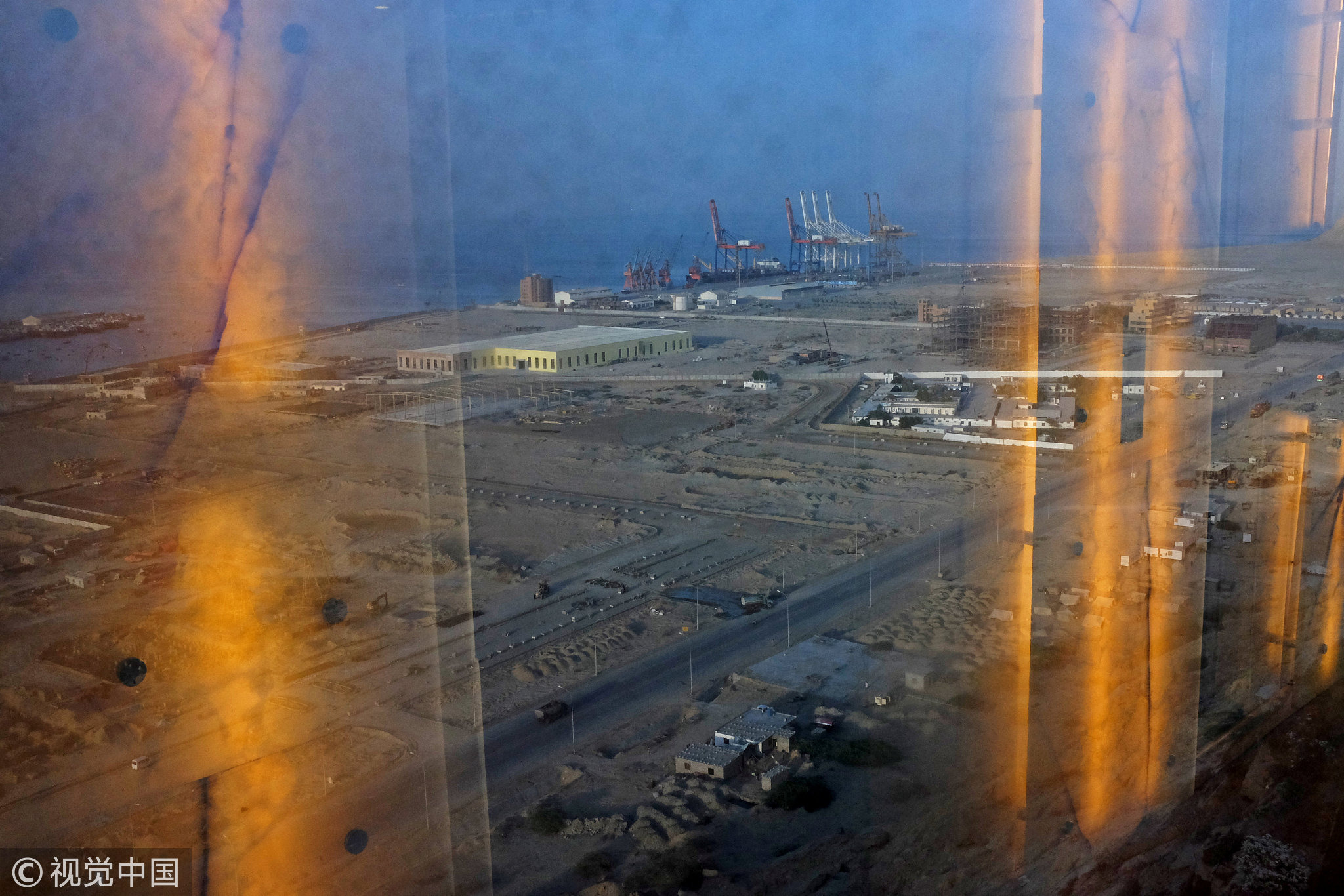
A general view of Gwadar port in Gwadar, Pakistan on October 3, 2017. /VCG Photo
A general view of Gwadar port in Gwadar, Pakistan on October 3, 2017. /VCG Photo
New members to slow down efficiency?
A year has passed since India and Pakistan joined the SCO as full Members. This was preceded by a period of negotiations and consultations, among the SCO States themselves and with Indian and Pakistani representatives.
There is nothing extraordinary about it.
On the contrary, it is quite explainable and justified – the organization expanded for the first time in its history and there were natural doubts about how the newcomers would fit into the existing vast network of cooperation mechanisms existing in the SCO as a result of 17 years’ work.
Drawing from my own working experience in the SCO, I can say with full responsibility that the organization has lost nothing in terms of its effectiveness or efficiency.
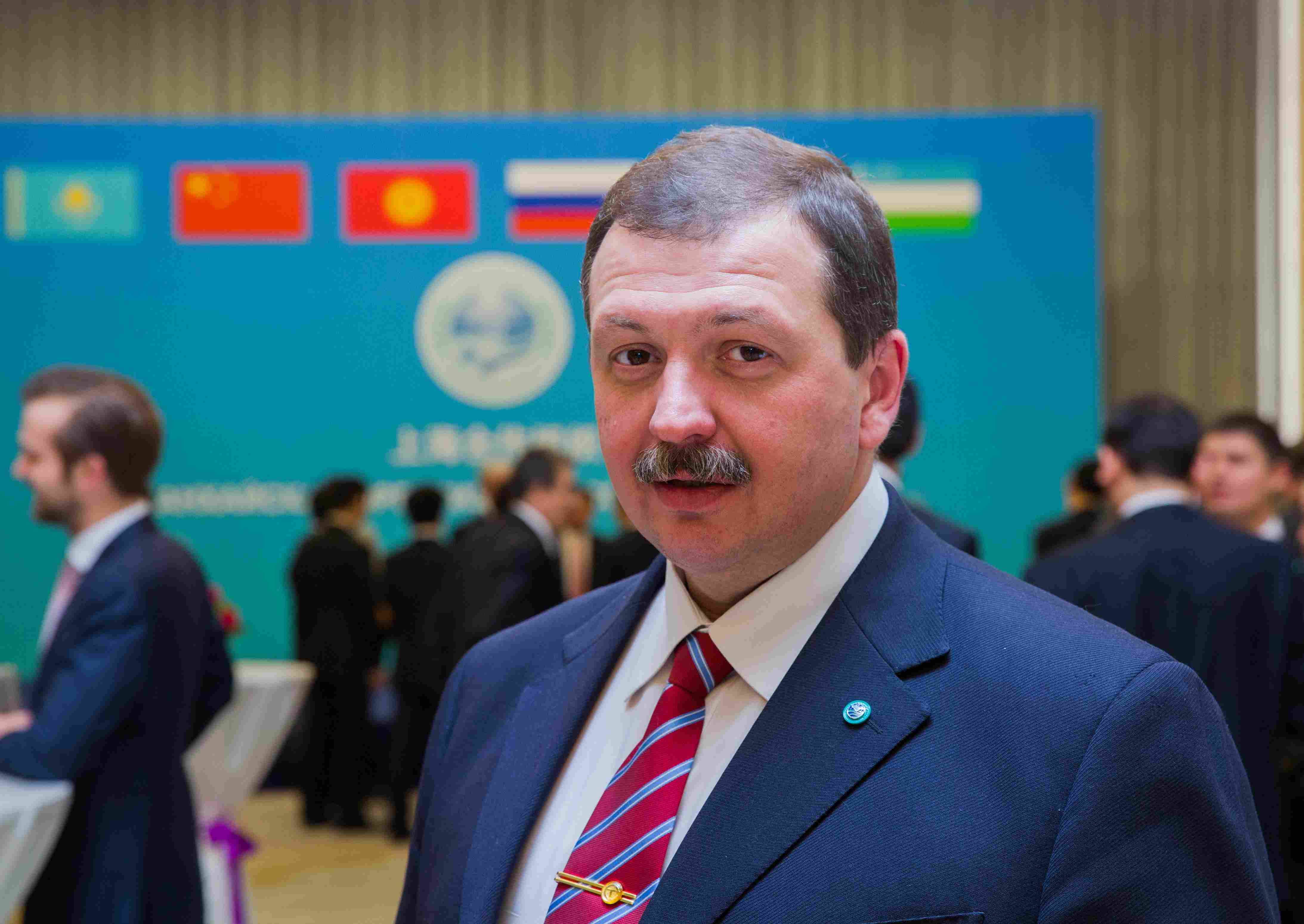
Dmitrii Lukiantsev, the Minister Counselor of the Russian Embassy in China and permanent representative of Russia to the Secretariat of the SCO. /From Russian Embassy in China
Dmitrii Lukiantsev, the Minister Counselor of the Russian Embassy in China and permanent representative of Russia to the Secretariat of the SCO. /From Russian Embassy in China
The gains, however, are obvious.
The cumulative potential of the SCO increased significantly. Brief statistics, after expansion SCO Member States occupy about 23 percent of the planet’s surface, with 43 percent of the Earth’s population producing a quarter of the world’s GDP. In my humble opinion that is something to be impressed with.
SCO has acquired additional opportunities to advance practical cooperation in all areas, such as political interaction and ensuring security, economic development and humanitarian contacts and exchanges.
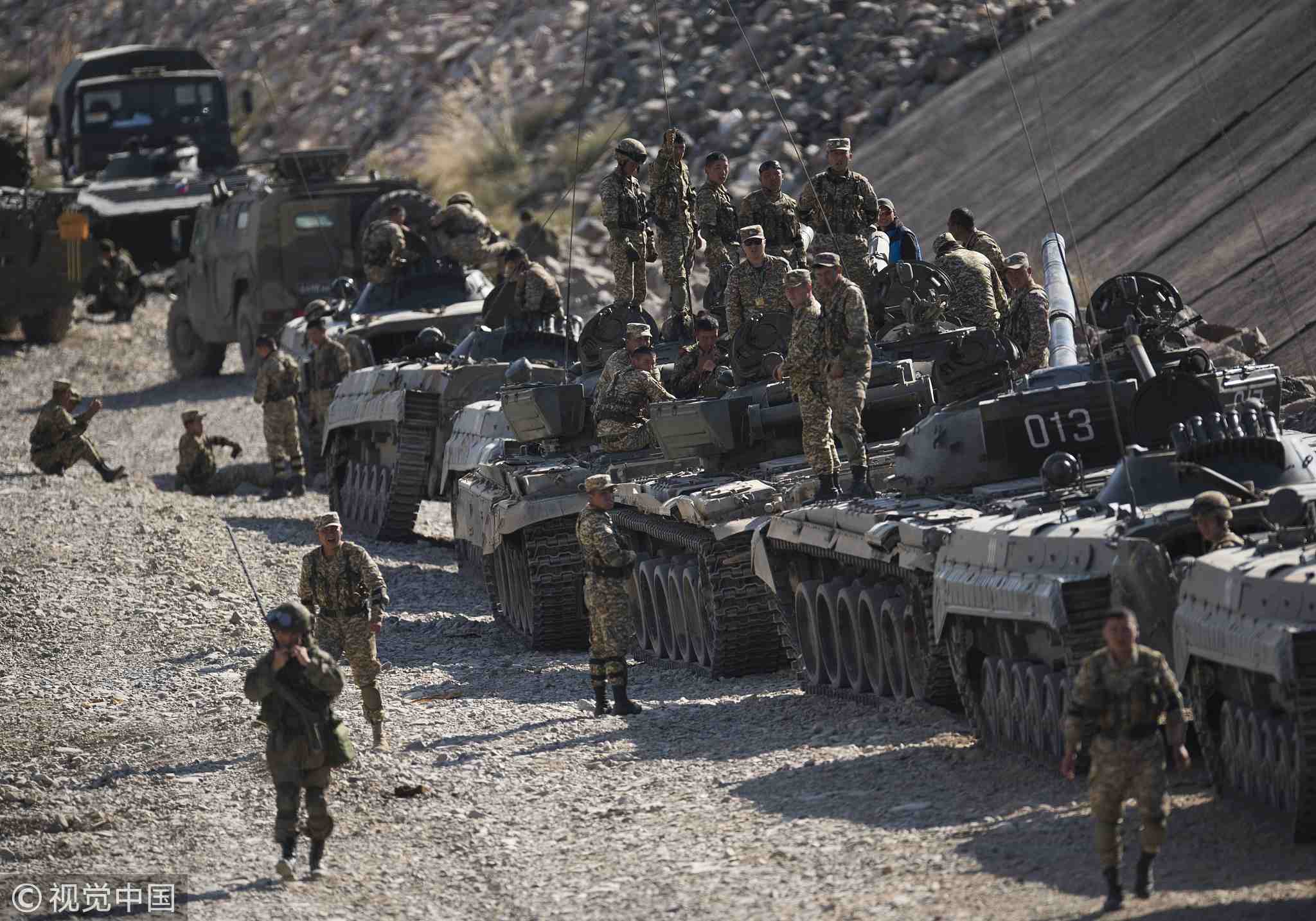
Servicemen involved in the Peaceful Mission 2016 anti-terrorism exercises by the Shanghai Cooperation Organisation in Kyrgyzstan. /VCG Photo
Servicemen involved in the Peaceful Mission 2016 anti-terrorism exercises by the Shanghai Cooperation Organisation in Kyrgyzstan. /VCG Photo
India and Pakistan have been participating in every event, every meeting since they joined, and there have already been quite a few, especially in the last two month as the Qingdao summit is coming closer.
For example, they have hosted two SCO RATS (Regional Antiterrorist Structure) expert meetings on their territory, both very successful. This practice will continue.
There have always been and always will be those who have doubts, concerns and hesitations. Reasons can be different, some just don’t know what the SCO is really about. Some over-exaggerate bilateral issues predicting they will slow the organization down or even paralyze its performance.
Some go even as far as view the SCO as an anti-Western, anti-NATO military bloc. All this has nothing to do whatsoever with the nature of cooperation within the SCO that has no military component, with how the SCO functions on a daily basis or how member states make decisions.
The organization comes to the Qingdao Summit consolidated and strong. Its positioning in the international arena has enhanced, its authority and reputation are as high as ever.
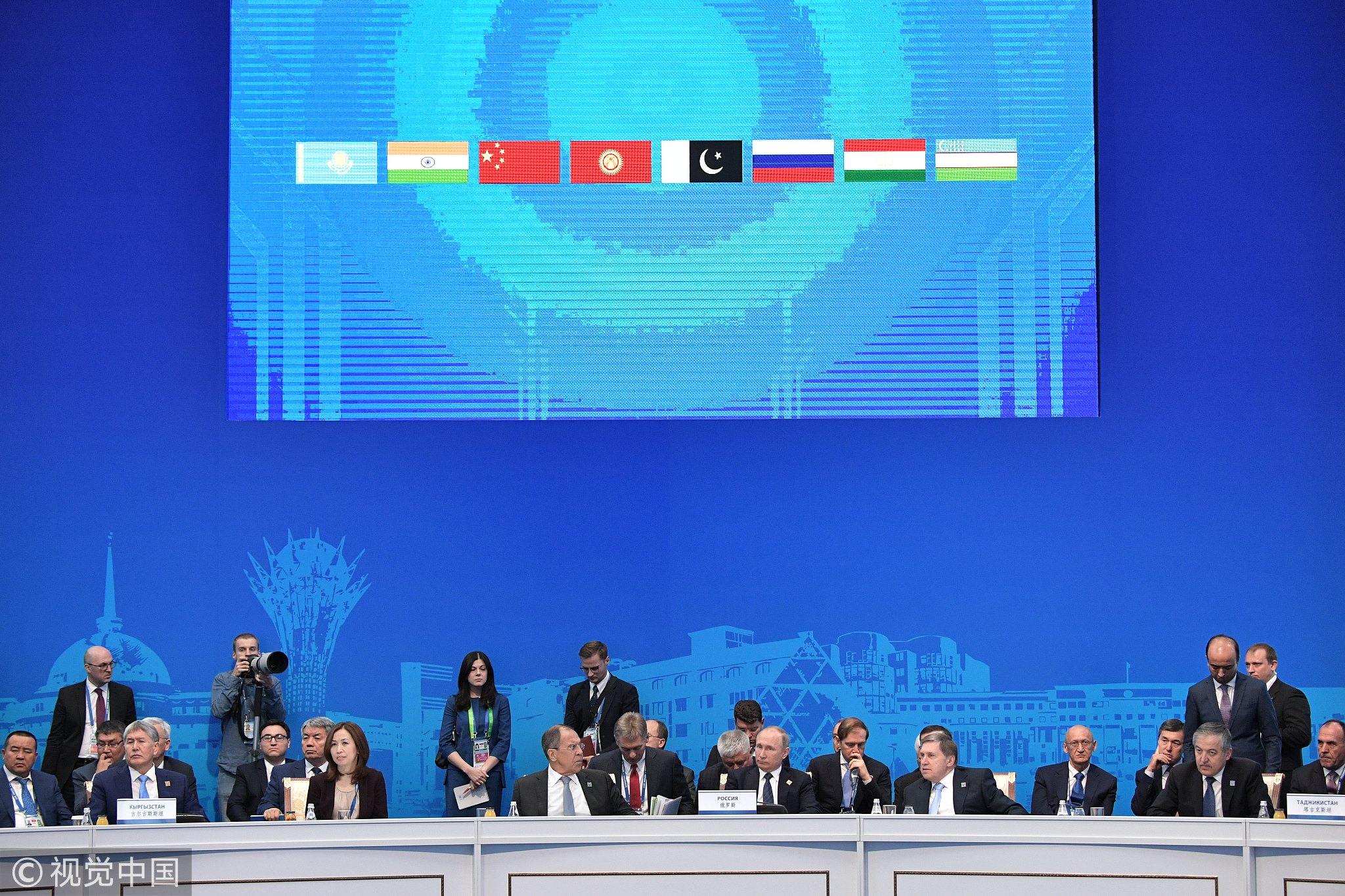
The signing of the decision on the completion of the procedure for admission and granting the status of an SCO member state to India and Pakistan as part of a meeting of the SCO Heads of State Council, June 9, 2017. /VCG Photo
The signing of the decision on the completion of the procedure for admission and granting the status of an SCO member state to India and Pakistan as part of a meeting of the SCO Heads of State Council, June 9, 2017. /VCG Photo
SCO is regularly present at various multilateral fora – in 2017, for example, SCO General Secretary was invited for the first time to the ASEAN events in Manila – he participated in the Ministerial Meeting and the East Asia Summit.
Also worth mentioning is the long line of countries and organizations wanting to join the SCO cooperation process in one form or the other or upgrade their existing official status in the organization. This is yet another acknowledgment of its attractiveness in the international community.
This shows among other things that the pace of SCO cooperation following the admission of India and Pakistan has not in the least slowed down and proves that our leaders made a correct and wise decision by admitting two new members to the organization.
Does the above-said anyhow justify allegations about the SCO being inefficient? I don’t think so.

